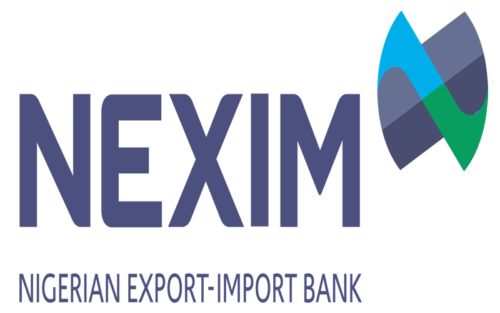Over the last one year, the Nigerian Export Import Bank (NEXIM Bank) has disbursed about N22 billion, thereby facilitating the creation and sustenance of about 2,039 direct jobs, in addition to many indirect jobs and foreign exchange earnings of about $267 million annually.
The beneficiaries include exporters of agricultural commodities and value-added products across the country with nation-wide impact, cutting across various sectors and agric value chain including cocoa, cashew, sesame seed, gum Arabic and leather products.
Aside its funding intervention, the bank has recorded a quantum leap in its financial indices, with a profit of about N2.09billion recorded in 2018, from a loss position in 2017. The bank’s balance sheet size also doubled from about N61billion in 2016 to about N117billion in 2018, and is projected to increase to N190billion by December, 2019.
Following the appointment of a new management in April 2017 led by Abba Bello and the inauguration of the Board under the chairmanship of the Central Bank of Nigeria (CBN) Deputy Governor, Joseph Nnanna in March, 2018, NEXIM Bank has undertaken significant steps to retool its operations. Besides collaborating with the CBN in the management of intervention funds to the tune of N550billion, its export support programme is predicated on the Produce, Add Value and Export (PAVE) philosophy.
NEXIM’s efforts to develop the non-oil export sector is currently structured along six initiatives, which include support for critical agricultural commodities, particularly in products where the country has high comparative advantage. This is to minimise informal trade and boost the country’s export footprint. NEXIM is also supporting services export in the areas of the creative economy, business process outsourcing and professional services, as well as medical tourism towards saving about $1billon lost annually to foreign trips by Nigerians.
As part of efforts to improve the packaging and quality standards of Nigeria’s exports, the bank is also providing funding and investment guarantees to facilitate private sector investments and partnerships in internationally acceptable laboratories and assaying facilities and related infrastructure. This is in addition to providing funding support towards the establishment of conditioning, irradiation and sterilisation facilities to enhance shelf life of perishable goods, as well as production of jute bags, corrugated cartons and flexible packaging materials.
Given Nigeria’s huge solid minerals potentials and the logistics challenges that have prevented the realisation of such benefits, NEXIM Bank is supporting the promotion of inland waterways operations and bulk export terminal upgrade though its Sealink project. This is expected to facilitate annual shipment of over 30million tonnes of Solid Minerals valued at $1.8billion.
Having realised the important contributions of the Small and Medium Enterprises (SME) sector and the need to integrate many of the small traders into the formal sector, the bank is partnering with other stakeholders under the auspices of FSS 2020 to develop the regulatory and legal framework for Factoring business in Nigeria. This is with a view to providing additional funding window and enhancing financial inclusion of small scale exporters.
NEXIM Bank’s intervention is also targeted at states and regional development through its one-state-one export commodity programme, whereby at least N1billion has been earmarked to develop one or two identified exportable commoditie(s) towards achieving the Zero Oil Plan policy of the federal government and promoting inclusive economic growth.
In implementing this programme, the NEXIM Bank is collaborating and has signed a Memorandum of Understanding with the Nigerian Incentive Risk Based System for Agricultural Lending (NIRSAL) to deploy interest rebate and risk mitigating instruments in support of projects in the agricultural value chains.












